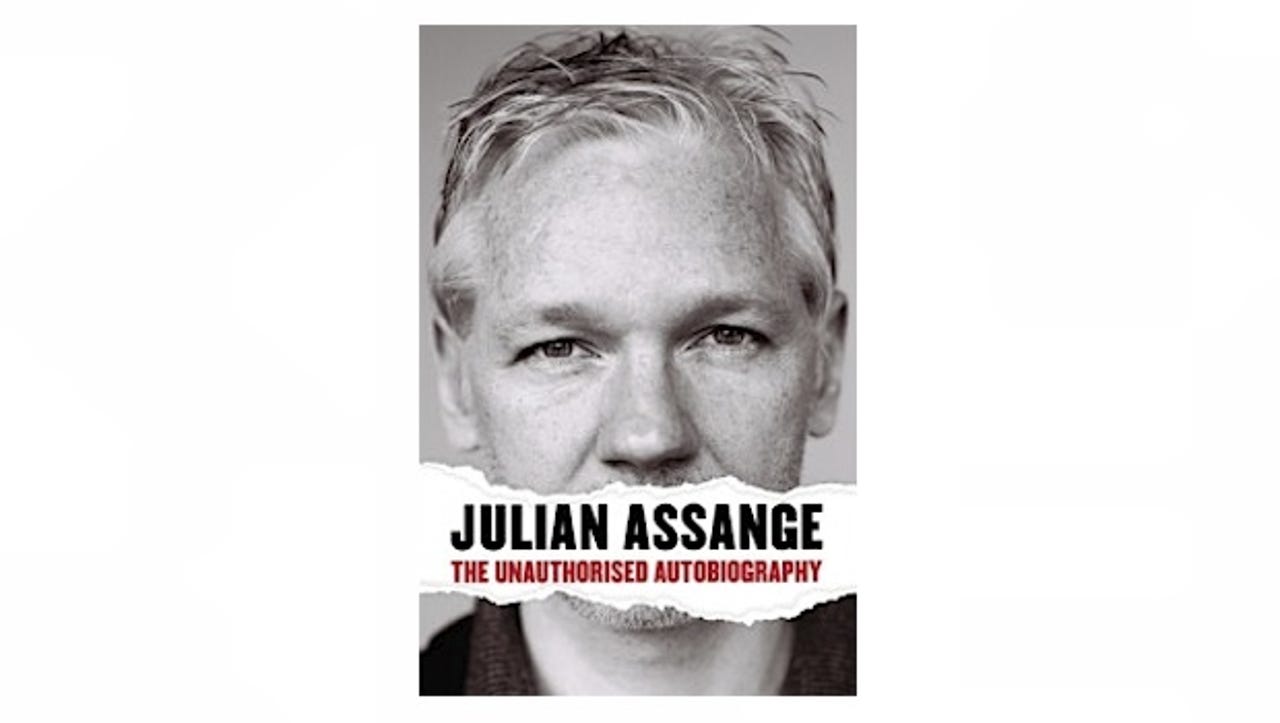Wikileaks books roundup

In The Revolution Will Be Digitised, Heather Brooke criticises Julian Assange for allowing himself and Wikileaks to become the media story rather than the materials Wikileaks uncovered and published. There could hardly be better evidence for this contention than the number of books being released about Wikileaks circa 2010 versus the number being released that analyse the diplomatic cables, or the inner workings of the military that allegedly inspired Private Bradley Manning to leak the documents in the first place. It must have been frustrating for the publisher Canongate, which spent $1 million to sign up Assange to write his memoir last December, to watch its planned June publication date whoosh past and interest begin to wane.

Last week the company gave up waiting for Assange's approval and published the book-in-progress without it. In doing so, Canongate joined a list of partners and associates Assange has shed or lost, leaving public recriminations in his wake.
Foremost among those former partners, of course, is the clutch of newspapers that Assange lined up to publish the diplomatic cables. Wikileaks: Inside Julian Assange's War on Secrecy, the book written by The Guardian's David Leigh et al, is notorious for publishing the password that cracks the full set of unredacted diplomatic cables (now on a torrent site near you) as a chapter subhead. The crossfire over this security malfeasance has overshadowed the book itself. This begins with a brief look at the personal backgrounds of Manning and Assange, and works through the various events leading up to The Guardian's publication of the cables and Assange's arrest for alleged sex crimes in Sweden. The last quarter or so of the book is a selection of the diplomatic cables that the newspaper eventually published. Heather Brooke, whose own book recounts some of the same events, plays a small but important role here.
The journalists who put this book together write clearly and coherently, as you'd expect. The story isn't particularly pretty, but it's the familiar one repeated in all the accounts of Assange's journey from unknown Australian hacker to Time magazine cover star. Assange impresses by delivering important new information or ideas, signs up partners to manage its release, and then...well, see above. This time, the partners are the editors of some of the most respected newspapers in the Western world: The Guardian, The New York Times and Der Spiegel — or maybe The Washington Post, El Pais and Le Monde. Even at a late stage, Assange was still juggling who he could trust to publish the cables (it's a little alarming that the editors of The Guardian and The New York Times have no idea how to secure communications — their internal security geeks couldn't help?).
The New York Times's take on the same events, Open Secrets, is available as an e-book (the publisher didn't respond to our requests for a review copy in time to include it here). In a lengthy essay, the paper's editor, Bill Keller, recounts the gist. Despite some embarrassment to the diplomats concerned, he concludes, publishing the cables has not been the catastrophe that some members of the US administration have claimed. Keller concludes by defending Wikileaks, arguing that it would be contrary to the US's best tradition of freedom of speech to prosecute it or Assange. Even so, he thinks Wikileaks' impact has been overblown.
These books are journalists writing about journalism, so it's no surprise that they stress the thoughtful expertise and careful consideration of professional journalists (Assange stresses the same values, although he considers himself a better and braver journalist than these editors). Keller calls Assange a source, rather than a partner; in the unauthorised autobiography, Assange resents and disputes this characterisation, calling himself instead the "architect of the plan". He wanted credit for Wikileaks "in order to advance its work" but, "I wasn't asking them for money and I wasn't asking them for glory".
"Sources are rarely pure or simple," Keller writes — and dealing with Assange was clearly neither.
One of the drawbacks of long experience reporting on developing technologies is that it's easy to miss the significance of new developments when you remember the discussions in which they were first mooted 20 years ago. It was that way for me with Wikileaks: the notion of anonymous trading in the secrets of powerful entities was clearly mooted in Timothy C. May's 1992 Crypto Anarchist Manifesto and 1997 Untraceable Digital Cash, Information Markets, and BlackNet. Oh, so someone's finally done it? What took them so long?
Julian Assange: The Unauthorised Autobiography is at its most interesting when, in the early part of the book, it lays out these antecedents. It's no surprise that Wikileaks is reminiscent of Timothy May's ideas: Assange, styling himself 'mendex', was participating on the cypherpunks list where May posted them. Assange's nomadic childhood, attending more than 30 schools in repeated cross-country moves with his hippie parents, makes his tolerance for being an outsider living out of a rucksack understandable.
All of that occupies about the first half of the book, and it does what a good book should do: shed new light on its subject. However, as it catches up with the formation and rise to fame of Wikileaks, the book moves onto material that's well-rehearsed elsewhere: Assange's views on governments that lie to their citizens, his various media partners (cowards), the sex crime allegations ("the most expensive [phone] call I didn't make"), the material Wikileaks has published, and freedom of information in general.
First drafts of books can be messy, incomplete affairs in need of considerable editing. What's baffling about this one is that it reads as though it's part first draft and part finished: the first half is coherent and the second half is a seemingly uncorrected rant (the biggest howler is repeatedly identifying the unnamed independent journalist Heather Brooke as working for The Independent), followed by an outline of the significant leaks Wikileaks published. But here's the thing: the second half sounds exactly like Assange's familiar style. The first half reads like he's been ghosted. The contrast makes it seem that Canongate rushed to publish, fearing the window of opportunity was closing.
There are still more books out there about the saga of Wikileaks circa 2010. Former Assange associate Daniel Domscheidt-Berg has one that didn't arrive in time for this review, for example. But the important thing about Wikileaks isn't its lead spokesman and his difficulties in dealing with other people. It's what comes next. Wikileaks has scared a lot of powerful people by publishing information they'd rather had been kept secret. It has also — or should have — shown prospective informants what they risk. Benjamin Franklin's encomium, "Three people can keep a secret if two of them are dead", applies as much to services promising anonymity to whistleblowers as it does to government systems where classified material can be accessed by over 800,000 people.
These broader questions are the ones that analyst Micah Sifry asks in Wikileaks and the Age of Transparency. While disparaging Assange's reportedly autocratic behaviour (all these books paint a similar portrait of Assange as unstable and quick to anger when his partners ran stories about him he didn't like, but none accuse of him of greed for money or fame), Sifry believes Wikileaks has nonetheless changed the world by providing the prototype for the services that will follow its lead. It has also exposed the central points of control in today's internet, such as Amazon.com and Paypal, which can cripple a news organisation simply by removing it from its servers or refusing to process payments.
So: skip the petty squabbles over who published what and to whom — Leigh, Canongate and the rest all have scores to settle. The really interesting view on all this is Sifry's, because the star of his book really isn't Wikileaks — it's transparency. Sifry champions an open and free internet, open data and open government, and examines aspects of all of them. Wikileaks simply provides an advanced worked example.
Julian Assange: The Unauthorised Autobiography Canongate 340 pages ISBN: 978-0-85786-384-3 £20 (£14.99 e-book)
Wikileaks: Inside Julian Assange's War on Secrecy By David Leigh and Luke Harding, with Ed Pilkington, Robert Booth and Charles Arthur Guardian Books 340 pages ISBN: 978-0-85-265239-8 £9.99
Wikileaks and the Age of Transparency By Micah L. Sifry Yale University Press 220 pages ISBN: 978-0-300-17676-6 £9.99